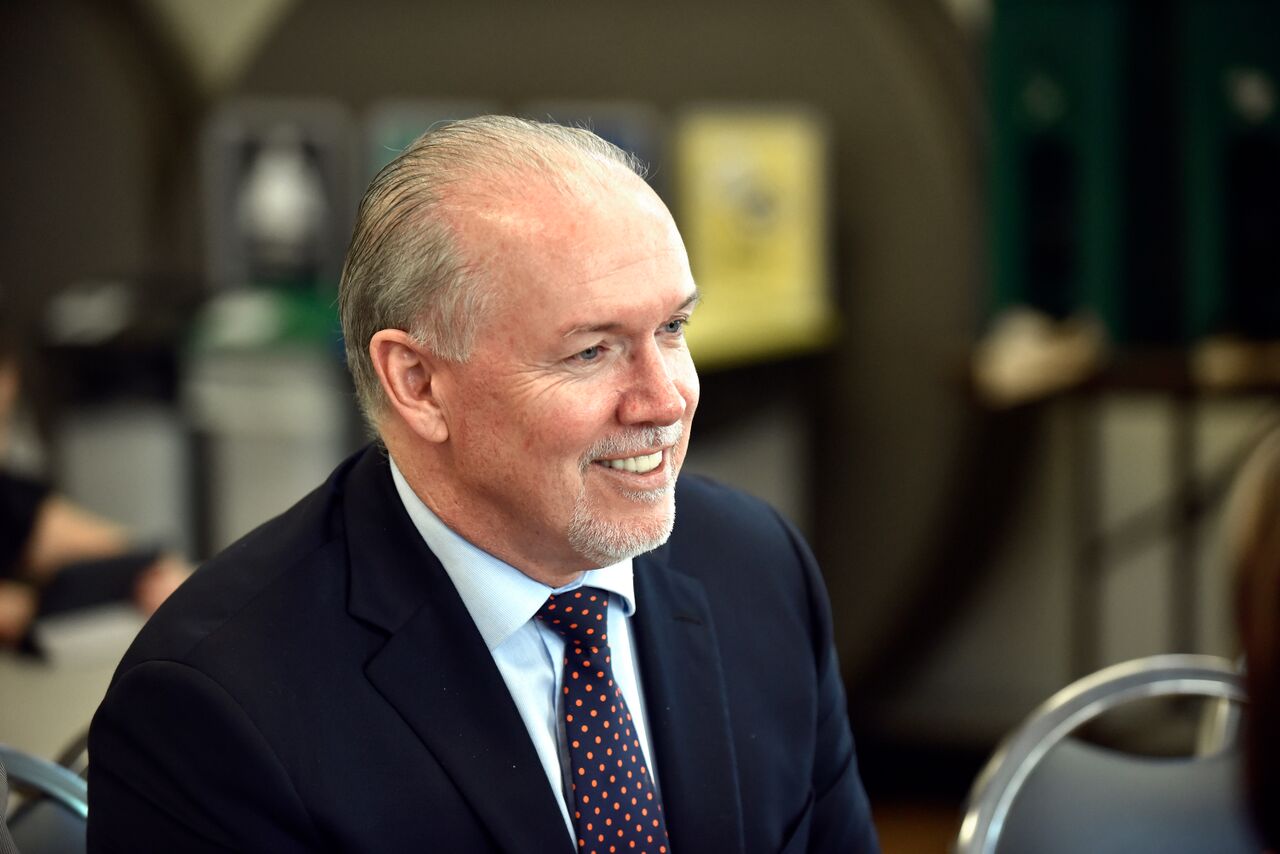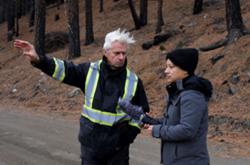A small number of donors to the BC Liberal Party have too much sway over British Columbia’s politics, NDP leader John Horgan said today while renewing a call to ban corporate and union political donations.
“In the last budget year, in 2016, based on information that we have that the Liberals released at the start of the year, we’ve been able to determine that 185 donors to the BC Liberals gave $6 million,” Horgan said. “That’s fully half of the money raised by the BC Liberals last year.”
In a province of 4.5 million people, it’s disturbing that just 185 donors are funding half of the governing party’s activities, Horgan said.
“Those 185 donors are getting a good return on their investment in the BC Liberals,” he said. “They’re getting tax reductions while regular people are paying more for health care, they’re paying more for their insurance, they’re paying more for their energy costs.”
Last week, the BC Liberal Party posted to its website a list of its donations for 2016, which would not usually be submitted to Elections BC until March 31, and committed to publishing details of any donations in 2017 within 10 days of receiving them.
Horgan said the NDP is still finalizing its list of donations from 2016 and will submit them to Elections BC as the law requires. “I believe the gimmick of real-time disclosure is an opportunity for [Premier] Christy Clark to give the impression of action where none truly exists.”
He pointed out that the NDP has introduced five private members bills since 2005 that would ban corporate and union donations, but the government has failed to support them. Horgan said he will reintroduce the bill when MLAs return to the legislature in February.
The NDP also included a ban on corporate and union donations in its platforms for the 2009 and 2013 elections, and will do so again ahead of the May 9, 2017 election, he said.
“If I am premier in May of this year, we will ban corporate and union donations and we will put people back at the centre of our politics where they truly belong.”
Interest in the public and media has grown over the last two years in getting big money out of provincial politics, Horgan said.
Referring to a recent article in the New York Times, Horgan said, “When we have international stories about the ‘wild west’ mentality toward fundraising here, and when we have the realization that the premier received $300,000 from her political party over the time she’s been leader as the result of her fundraising activity, I think that heightens awareness of these issues.”
Asked if the BC Liberals’ full coffers put the NDP at a disadvantage, Horgan said, “I feel that British Columbians are at a disadvantage when the wealthy and well connected can get access to government and they can’t.”
The BC Green Party, which last week announced it had raised $763,667 in 2016, said in September that it would not be accepting donations from corporations or unions.
“Sadly once again both the BC Liberals and the BC NDP have shown us this week that they aren’t willing to take action now, which is what British Columbians want,” leader Andrew Weaver said in an emailed statement Jan. 19.
“The B.C. Liberals are just laughing it off, while the B.C. NDP will only do something about it if they win the election. In the meantime, both of them will accept the same potentially corrupting money that is making B.C. the wild west of politics, even by American standards.”
Horgan has said in the past that refusing corporate and union donations while the BC Liberals still accept them would put his party at an unfair disadvantage.
“We’ve led by example by introducing legislation that would stop the activity,” he said today. “We need to change the law and apparently in order to do that we need to change the government.” ![]()
Read more: Politics, Federal Politics, BC Election 2017, BC Politics


















Tyee Commenting Guidelines
Comments that violate guidelines risk being deleted, and violations may result in a temporary or permanent user ban. Maintain the spirit of good conversation to stay in the discussion.
*Please note The Tyee is not a forum for spreading misinformation about COVID-19, denying its existence or minimizing its risk to public health.
Do:
Do not: